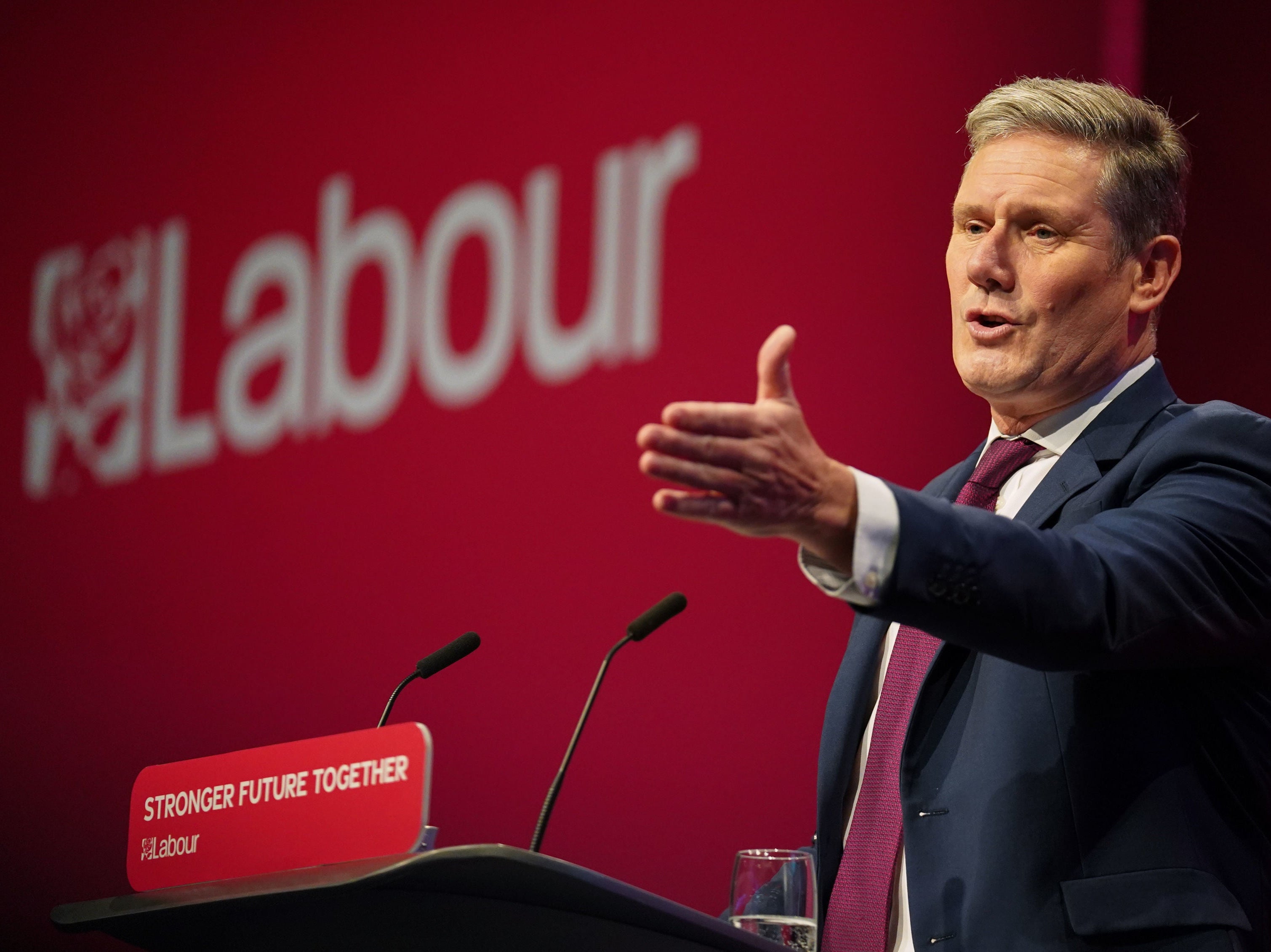Keir Starmer needs to do more to show voters that Labour has changed, even if his party doesn’t like it
A BBC series about New Labour offers Starmer plenty of ideas on how to win elections, writes Andrew Grice


Boris Johnson’s uncertain response to the fuel crisis invites unflattering comparisons with Tony Blair, who was shaken by the same problem in 2000 after truckers and farmers blocked deliveries to petrol stations.
The Conservatives moved ahead of Labour in the opinion polls. “We were spooked and didn’t know how it would end,” one Blair aide recalled this week. Blair showed the leadership the current government lacks. His problem at the pumps was a one-off but Johnson’s go much deeper: supply-chain issues, shortages, price rises and a cost of living crisis made worse by government decisions. Brexit is one factor, even though pro-Leave ministers are in denial.
Love him or hate him, you can’t keep Blair out of it. In his conference speech, Keir Starmer couldn’t quite bring himself to use the B-word; if he had named Blair, there would probably have been enough boos from the audience to send the wrong message to the public. Instead, voters got the right signal: delegates cheered New Labour’s achievements when Starmer rattled them off. His message to his party was that it must learn from the best of the Blair-Brown era rather than trash it.
But Starmer needs to learn lessons too. He should find time to watch every second of five one-hour BBC programmes starting on Monday – Blair & Brown, the New Labour Revolution. My colleague John Rentoul, The Independent’s chief political commentator, and Jon Davis, of King’s College London, who co-wrote the book Heroes or Villains? The Blair Government Reconsidered on the last Labour government, were series consultants.
I’ve watched the programmes – a fascinating and revealing account of the New Labour years. Blair and Gordon Brown speak more candidly than ever about their relationship. The two new were MPs thrown together in 1983. Blair says New Labour would not have developed in the same way if they had not shared a cramped Commons office, admitting that senior partner Brown “taught me how to make a speech”. The blood brothers whose project transformed British politics. The constructive partnership that became destructive, ending in what the former cabinet minister John Reid calls the Shakespearean tragedy of an impatient Brown trying to force Blair out so he could take over as prime minister: “The prince could not wait for the king to die.” There is another side to the story. Brown denies he was consumed by ambition and his ally Ed Balls suggests Brown felt like a “fool” for waiting as Blair spun out his long goodbye.
Peter Mandelson says Blair and Brown had different visions: “Tony was much more new, Gordon was much more Labour.” Mandelson wells up as he describes how Blair forced his second cabinet resignation over allegedly helping Srichand Hinduja get a British passport; he was later cleared of any wrongdoing. Blair, utterly ruthless towards his close friend and adviser, now admits his “mistake” in not toughing it out.
Blair insists he retained his “obligation” to Brown (for standing aside for Blair when John Smith died in 1994) and “deep attachment” to him even when they were having “a difficult time”. Blair believes “maybe two people have never been that close in politics” – probably “too close”. Brown, characteristically, is less emotional: there were “genuine policy differences” but the tension was probably “creative”. After three years as prime minister compared to Blair’s 10, Brown admits his sense of “unfinished work”. Significantly, he argues New Labour could have done more to improve public services and tackle inequality if Blair had not overruled him to ape the Tories by refusing to raise the top rate of income tax.
What should Starmer take away from it? There are parallels in the state of the party he inherited after four election defeats, as Blair did. In fact, Starmer is in a much weaker position; Neil Kinnock had done a lot of modernising spadework when Blair took over. He was up against a John Major government with a tiny majority and heading for defeat after losing its economic credibility. Despite his current woes, Johnson is in a much stronger place.
The lesson is that Starmer needs to do much more to show voters Labour has changed and is fit for office, even if his party doesn’t like it. Tweaking Labour’s rules, as Starmer did this week, was a good start but suddenly felt small as I watched Blair and Brown’s “revolution” in opposition. Starmer will need to be bolder on policy. That doesn’t mean a lurch to the right – instinctively, he is more Brown than Blair – but finding a confidence and clear direction he hasn’t yet displayed.
His left-wing critics accuse Starmer of adopting “the New Labour playbook”, which they regard as the ultimate insult – a sign of how many Labour members hate Blair, mainly because of his Iraq war. The critics ignore the fact that the playbook won over voters from the Tories, just as Starmer must do for Labour to regain power. Whatever his faults, Blair didn’t win three elections by accident.
‘Blair & Brown: The New Labour Revolution’ starts on Monday, 9pm, BBC Two. All episodes will be available on BBC iPlayer from Monday



Join our commenting forum
Join thought-provoking conversations, follow other Independent readers and see their replies
Comments